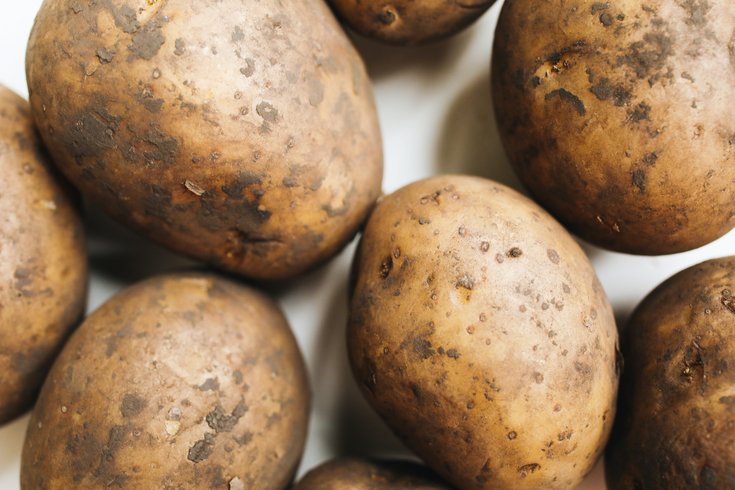
January 19, 2024
 Polina Tankilevitch/Pexels.com
Polina Tankilevitch/Pexels.com
Penn State University researchers found pathogens in potato crops that could pose a threat to the state's thriving potato chip industry.
Pennsylvania could face a potato shortage because of diseased crops damaged by bacterial infections, researchers at Penn State University said. Left unchecked, the pathogens potentially threaten the the supply used by the state's potato chip makers, like Utz, Herr's, Martin's Potato Chips and Snyder's of Hanover, among others.
The Penn State researchers began monitoring potato crops at farms in the state in response to major losses suffered by producers in Maine and New York, where harvests have been reduced by several pathogens in recent years.
"The losses in the Maine potato industry, as well as the importance of the potato industry here in Pennsylvania and to the potato chip industry, necessitated that we determine what pathogens may be causing these outbreaks," said Carolee Bull, a plant pathologist at Penn State's College of Agricultural Sciences.
Researchers looked at 26 potato fields in Pennsylvania, collecting stems and tubers that showed symptoms of rotting, wilting, lesions and stunted growth. Tests conducted on the crops found bacterial strains from several known species, including some that were identified in other outbreaks. One of the strains found in Pennsylvania was detected for the first time in the United States.
Pennsylvania is sometimes called the "Potato Chip Capital of the World" because of the number of manufacturers of the salty snacks based in the state. Much of the industry is concentrated in the Susquehanna Valley of central Pennsylvania, where German settlers' tradition of making hard pretzels evolved into a broader snack industry. Potato chips are said to have been invented in upstate New York, but some folklorists believe their origin story may be a product of mythical fabrications. In Pennsylvania, a thriving culture of farmers markets and the emergence of companies like Hershey's made the state a natural place for the snack industry to grow.
Herr's, Utz and Wise Foods are among the largest national distributors of potato chips, with smaller companies like Martin's, Bickel's and Kay & Ray's focusing on regional distribution. Many of Pennsylvania's potato chip makers are still family-owned businesses.
Utz did not immediately respond to inquiries about the pathogens observed in Pennsylvania crops. Herr's declined to comment.
The diseases Penn State researchers found are usually caused by two species of bacteria — Pectobacterium and Dickeya. They are different from the fungal infestation that led to Ireland's potato famine between 1845-1852. That blight led to mass starvation and hunger-related diseases, killing nearly a million people and compelling about 1 million more to emigrate elsewhere in Europe and to North America.
Published this week in the journal Systematic and Applied Microbiology, the Penn State research does not mention any health risks these pathogens pose to people. The purpose of the research was to help develop crop management strategies to account for agricultural conditions that promote outbreaks of these bacteria, which have become more prevalent in the region, the researchers said.
"In addition to surveillance, these insights could also help us better understand disease epidemiology," Bull said. "For example, the pathogens may have different optimum temperatures for growing or for producing these symptoms in the potatoes. So, the severity of the disease may change depending on different climate conditions."
One concern is the bacteria species Dickeya solani, which has led to severe disease outbreaks in European crops. Following the spread of these pathogens is important because their effects may be more serious in areas where they travel. The fungal strain that precipitated the Irish Potato Famine is believed to have originated in the Americas before spreading to Europe and other parts of the world.
In the U.S., depending on the region, potatoes are usually harvested in August or September. Climate conditions also can weaken yields. Maine's up-and-down potato harvests have led to shortages in some years and surpluses in others, allowing suppliers to send crops out west to states that have been impacted by drought conditions.
The Penn State researchers said they will develop tools to continuously monitor the bacteria they found in the crops they collected. They hope to give growers the resources they need to observe problems that arise in different varieties of potatoes and adjust their practices accordingly.
The Penn State research was supported by the United States Department of Agriculture and the USDA National Institute of Food and Agriculture.